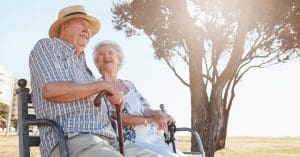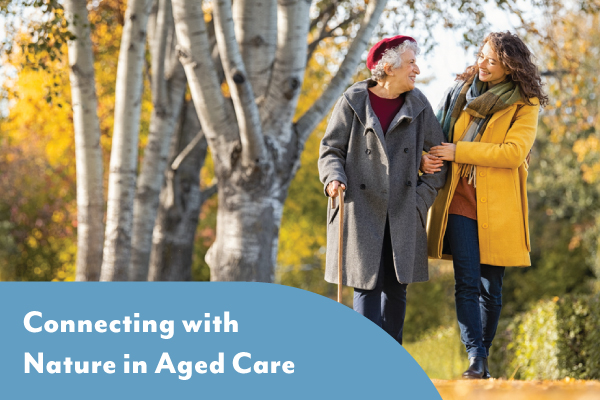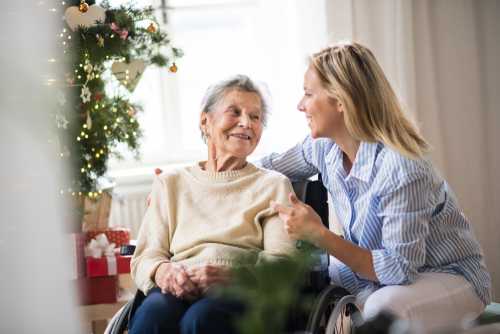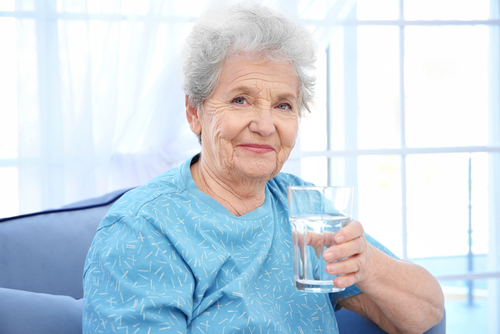For many, summer is for enjoying more time outdoors and relaxing in the sunshine. It’s also important to remember to stay safe and SunSmart, especially for older individuals who may be more vulnerable to the heat.
Warm weather and particularly extreme heat can put the health of individuals at risk, and this risk is often increased for the elderly. For some, heat can simply have them feeling hot and uncomfortable, but for others high temperatures, especially above 30 degrees Celsius, can result in serious illness and even death. In fact, according to the Australian Medical Association, heat stress causes the death of over 500 people in Australia each year. With temperatures increasing across the country, this number is set to rise.
While it’s a great time to relish the nice weather, a few simple precautions and efforts can ensure that everyone can stay comfortable and safe this summer.

Summer safety especially important for elderly
While anyone can suffer from heat related illness when the temperatures rise, seniors are at increased risk. Why? As the body ages, our built-in bodily functions become less efficient at doing their jobs. This includes regulating body temperature. One of the main ways the body cools itself down is through sweating, however seniors tend to sweat less.
The heat of summer can also be more serious for seniors due to health and lifestyle factors, such as:
- Chronic illness (heart disease, diabetes, high blood pressure, dementia, kidney disease for example)
- Prescription medications
- Dehydration
- Diet
- Overdressing for the weather
- Lack of access to cool environments
Staying alert: symptoms of heat distress in elderly individuals
Thankfully with the support of aged care professionals, the risk of heat-related illness can be minimised for ageing individuals.
It’s vital that aged care workers are aware of the signs and symptoms of heat stroke, heat exhaustion and dehydration. Knowing the warning signs and monitoring elderly residents means intervention can take place to maintain safety and wellbeing.
There are many heat-related conditions that a person may be affected by in summer or in any hot climate. These include:
- Dehydration
- Heat cramps
- Heat exhaustion
- Heat stroke
- Worsening of existing conditions
- In serious instances, death
There are many symptoms to stay aware of for optimal summer safety for seniors. The most common symptoms of a person experiencing heat stress are:
- Dizziness or confusion
- Tiredness
- Irritability
- Muscle cramps and spasms
- Shallow, fast breathing
- Nausea
- Headache
- Rapid pulse
- Hot to touch
- Dry tongue
Knowing and monitoring these signs of an elderly person being affected by the heat can help to prevent serious illness.
Summer safety: Top Tips
When it comes to ensuring safety in the heat, especially for senior individuals, prevention is key. These summer safety tips will help aged care professionals to keep the elderly in their care feeling well and comfortable even when the temperatures rise.
Drink plenty of water
An obvious one, but immensely important. Regular sips of water are a must to stay adequately hydrated. Ageing individuals are more vulnerable to dehydration. Sometimes they may forget to drink water, others may not notice the symptoms of dehydration such as dark urine or reduced output. Make sure you encourage regular sips and keep fresh water accessible at all times.
Staying cool
Fans, air-conditioners, wet towels — keeping the body temperature at a safe level can go a long way to increase comfort and decrease risk of the body experience heat stress.
Check prescriptions
It’s important to know if someone in your care has an increased likelihood to suffer from dehydration, increase body temperature or even sun sensitivity. Make notes of anyone who may be extra susceptible due to their medications so you can take precautions.
Dress appropriately
When helping those in your care to dress for the heat, look to loose, light fabrics that breathe. Natural materials are better to regulate body temperature, such as cotton or linen. And don’t forget a hat and sunscreen for venturing outside to protect from the UV rays and prevent sunburn.
Find indoor alternatives
When it is especially hot, avoid heading outdoors. Finding a few indoor alternatives for much-loved lifestyle activities is useful to ensure wellbeing and routines are maintained while staying safe in summer. For example, group walks around the facility can replace walks outside — stick images of birds around the facility to make it a ‘bird-watching walk’! You could bring gardening indoors too — some soil, cuttings, recycled jars and water are all you need to start little indoor gardens that can thrive on the window sill.
Take it easy
Hot weather sometimes means taking it slow and not exerting the body. Sometimes staying inside by the fan or air-conditioner is a must. Offering puzzles, reading, card games, movies or listening to the radio are perfect for a hot weather timetable.
Supporting seniors health in summer
With a few strategies and plenty of knowledge about the risks hot weather, aged care workers can keep ageing individuals safe, hydrated and happy even when the temperature rises.
If a fulfilling career in aged care is something you’re interested in, or you are considering upskilling, please get in touch with our team here at Selmar — we’d love to support you in your efforts to support senior Australians.



